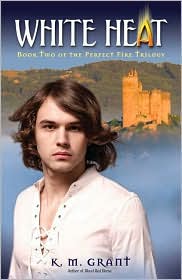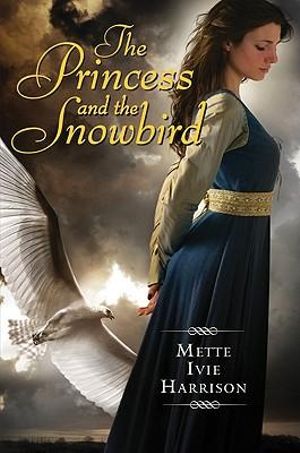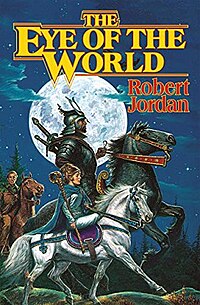 Synopsis: Young Helen of Sparta is not about to be left behind when her older brothers head off to join the quest for the Golden Fleece - why should boys get to have all the fun? Accompanied by her friend, the ex-slave Milo, and disguised as a boy herself, Helen sets out to join the crew of heroes aboard the fabled ship the Argo. But even with the best-laid plans, it takes all of Helen's wits, plus a favor or two, for their voyage to begin - a voyage that will bring many changes for our determined heroine.
Synopsis: Young Helen of Sparta is not about to be left behind when her older brothers head off to join the quest for the Golden Fleece - why should boys get to have all the fun? Accompanied by her friend, the ex-slave Milo, and disguised as a boy herself, Helen sets out to join the crew of heroes aboard the fabled ship the Argo. But even with the best-laid plans, it takes all of Helen's wits, plus a favor or two, for their voyage to begin - a voyage that will bring many changes for our determined heroine.
Helen quickly faces all sorts of danger and intrigue. Not only does she have to avoid her brothers' detection, a devastatingly handsome boy catches her eye and Hercules falls in love with her boy-self. There are battles to be fought, as well as an encounter with a terrifying murderous princess. But that's only the beginning! With her beauty blossoming, Helen's journey takes her beyond the mythology of the Golden Fleece to Athens, where her very future as Queen of Sparta is threatened.
Review: This had more of a definite storyline than Nobody's Princess, and it was every bit as good. Helen continues to be a good, properly strong female heroine without being obnoxious and always disparaging against the male gender. I have always been a fan of the myth of the Golden Fleece, so I found this installment particularly fun. Esther Friesner's rendition of Jason was well in keeping with how I always suspected he may be, and her Medea was astounding. She brought new and further life to an already intriguing character; I know that whenever I read about her in the myths again, I will feel more as if I know her.
But mixed in with the adventure, the good characters, and all that, there were some delicate and disturbing content. Hercules really does fall in love with Helen's boy-self Glaucus. Resulting in Hercules's weapons bearer being quite jealous of Helen - yes, his weapons bearer doubles into Hercules's boyfriend as well. Now, I always suspected that Hercules was gay when I read the myths - I suspected that of most of the Greek heroes, except Odysseus, Jason, and Hector (the latter not necessarily a Greek hero, but I always liked him). But it was disturbing to read. Esther Friesner does not carry this to a ridiculous degree, though, and nothing actually happens. The other delicate matter the Author addresses is when Helen transitions from girlhood into womanhood by the arrival of a monthly event which we ladies detest. I'm never one who likes it when an Author brings in such issues into a story - it's invasive, though realistic, but there are some realistic matters that one need not address. One of the attractions of literature is we get a chance to live in a world where daily functions are modestly ignored. But Esther Friesner deals with this issue very delicately, with careful and few words, and it actually does serve to introduce an important plot development.
What I found most disappointing was the end. It isn't abrupt or lacking - nothing like that. But I was sad to discover that the Author gives no explanation as to why it is Helen eventually marries Prince Menelaus. He's featured very briefly and there's no indication that Helen would ever consider him as a husband. I had waited in anticipation for this - what did Helen see in Menelaus that resulted in such an intimate tie? And then nothing.
Still, I will buy Nobody's Prize to add to my collection, and if you enjoyed Nobody's Princess, you'll enjoy this one, too.
Overall Rating: JJJ
Review: This had more of a definite storyline than Nobody's Princess, and it was every bit as good. Helen continues to be a good, properly strong female heroine without being obnoxious and always disparaging against the male gender. I have always been a fan of the myth of the Golden Fleece, so I found this installment particularly fun. Esther Friesner's rendition of Jason was well in keeping with how I always suspected he may be, and her Medea was astounding. She brought new and further life to an already intriguing character; I know that whenever I read about her in the myths again, I will feel more as if I know her.
But mixed in with the adventure, the good characters, and all that, there were some delicate and disturbing content. Hercules really does fall in love with Helen's boy-self Glaucus. Resulting in Hercules's weapons bearer being quite jealous of Helen - yes, his weapons bearer doubles into Hercules's boyfriend as well. Now, I always suspected that Hercules was gay when I read the myths - I suspected that of most of the Greek heroes, except Odysseus, Jason, and Hector (the latter not necessarily a Greek hero, but I always liked him). But it was disturbing to read. Esther Friesner does not carry this to a ridiculous degree, though, and nothing actually happens. The other delicate matter the Author addresses is when Helen transitions from girlhood into womanhood by the arrival of a monthly event which we ladies detest. I'm never one who likes it when an Author brings in such issues into a story - it's invasive, though realistic, but there are some realistic matters that one need not address. One of the attractions of literature is we get a chance to live in a world where daily functions are modestly ignored. But Esther Friesner deals with this issue very delicately, with careful and few words, and it actually does serve to introduce an important plot development.
What I found most disappointing was the end. It isn't abrupt or lacking - nothing like that. But I was sad to discover that the Author gives no explanation as to why it is Helen eventually marries Prince Menelaus. He's featured very briefly and there's no indication that Helen would ever consider him as a husband. I had waited in anticipation for this - what did Helen see in Menelaus that resulted in such an intimate tie? And then nothing.
Still, I will buy Nobody's Prize to add to my collection, and if you enjoyed Nobody's Princess, you'll enjoy this one, too.
Overall Rating: JJJ
Other Books in This Series:
1)Nobody's Princess
2)Nobody's Prize













